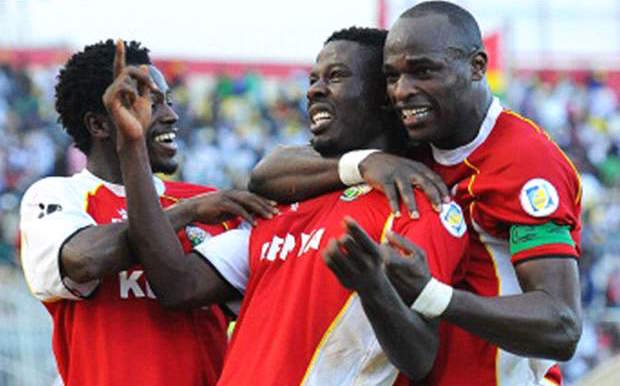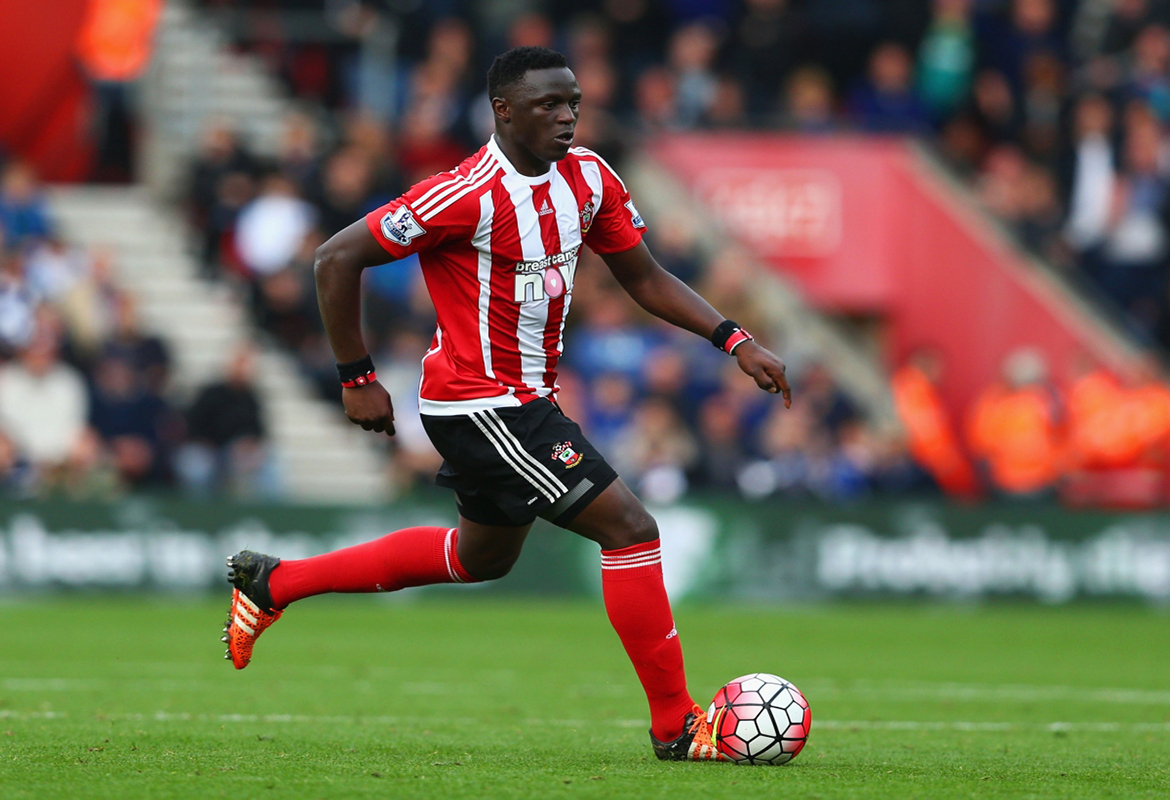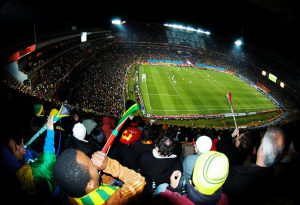The transfer window in Europe is proving to be quite interesting, generating a measure of excitement almost equal to that experienced in the course of the season. Manchester United looking like champions already, Raheem Sterling makes a ridiculously expensive move from Liverpool to Manchester City, Mourinho must be wondering why they are all playing so hard to catch up, while my dear Wenger is seated in the corner somewhere counting his coins making sure he did not drop any on his way from Singapore. Barcelona do not really care about FIFA’s transfer ban while Real Madrid have lost Iker, one of the few remaining madridistas. Back in my country Kenya the mid-season transfer was even more exciting. Looks like my beloved AFC Leopards replaced a whole team after a massive exodus due to financial woes. Players criss-crossing the country and continent in search of greener terrain with mixed fortunes. Talent looking for opportunity.
Talent
There is the case of Paul Were who failed to secure an International Transfer Certificate in time to play for Gor Mahia after being released by South African club, Amazulu. He had been there for only a year. Allan Wanga who despite making the cut at another South African club was apparently denied a work visa. He had to return home then off to Tanzania to sign for Azam, the Chelsea of East African Football. Kevin “Ade” Omondi who absconded from Sofapaka to sign for Kariobangi Sharks which features in the FKF Premier League. He also recently had an unsuccessful spell in South Africa. Brian Mandela is currently training with a PSL side hoping to impress the technical bench (he has since joined ABSA Premiership side Maritzburg United). Jacob Keli seems to be enjoying his time in Zambia having already netted 2 goals in as many matches for Nkana, albeit in pre-season friendlies. David “Calabar” Owino is also doing well, I am assuming, in the Zambian league.
I am quite concerned by the cases of Kevin Omondi, Paul Were and to some extent Allan Wanga. These are hugely talented players but for some reason never seem to make the cut once they venture out of the country. Now the centre attention is one Michael Olunga currently with Gor Mahia. His performances at the recent Kagame Cup in Tanzania has drawn a lot of attention with offers come in from all directions. In typical fashion, a huge transfer fee has been slapped on him by his handlers – $200,000 for any foreign club interested in his signature. We are not sure if and when he will “go professional”. But why do we insist on going abroad in order to be considered professional?
Competing locally
I recently read an article by Dr. Bitange Ndemo titled Innovation thrives on producing and competing locally and I started thinking about this from a football perspective. In my football lifetime, Kenya has only produced three players of world standard, namely: McDonald Mariga formerly of Parma, his younger brother Victor Wanyama currently at Southampton and Denis Oliech formerly of Auxerre. You might argue for Mike Okoth but he did not feature in any of the top 5 leagues in the world. Perhaps a biased criteria! Now compare this to the number of Kenyans working internationally and are highly recognised in their respective professions. Then ask yourself how many of these professionals were actually developed to go and work abroad. Very few. A vast majority were actually head hunted for the skills they had acquired locally, while competing locally. They were professionals by any definition of the term. My view is that that same should apply to football and sports in general. It is high time we started developing talent for the local market with a view of raising the standards of the game within the country. My previous articles have touched on some of the areas we should focus on such as infrastructure development and youth systems.
Currently, what we have is a poorly managed business whose success is almost entirely based on chance rather than strategy. We identify a talented player and we immediately tag him ‘for export’. His handlers (the business owners) will immediately tie him down with dubious contracts with the a hope of cashing in when the right buyer comes along. In the meantime loan him out to various local clubs in the guise of development. As I have pointed out already the success rate of this system is disappointing. Our players rarely survive a season in the the foreign leagues some of which are not even as good as the Kenyan Premier League. From observation you will realise that most of these players return as rejects and never reach their previous peaks, perhaps a dent in their confidence. They struggle for a few seasons in the local leagues before age catches up and they quickly make it to the list of waliyovuma – players who were once the darling of the crowds but are now part of the crowd. This is never the intended outcome but it is no doubt an expected one bearing in mind how we run the business. So what needs to be done.
Borrowing from the tech industry
The recently concluded Global Entrepreneurship Summit that was held for the first time in Sub-Saharan Africa gives us a good pointer. Just as a side note, the lady who sat between Mr. Barak Obama and Mr. Uhuru Kenyatta was a year ahead of me at the university. Sometimes you wonder when the rain started beating you…anyway the sun will shine! Back to GES2015. You could see that there was a lot of focus on local projects and solutions with potential for global impact, young Kenyan entrepreneurs looking to make a mark, tackling local issues while striving to achieve global standards. And the world was there to witness the talent on display. Well this tech revolution has been happening in Kenya for the last 10 years or so and now the results can be seen.
We need the same in football – a holistic and strategic approach to develop football talent for the local market while seeking to achieve global standards. And its not about players only. The the UEFA Handbook of Football Association Management states, “A more entrepreneurial approach is needed, and which continues to preserve and promote the social role of football.” It could take another 15 to 20 years to transform the football business, but the economic and social benefits should encourage the participation of all: government institutions, corporates, academic institutions, etc. This can be done through mutually beneficial partnerships. Ultimately, as the quality of our local market gravitates towards global standards our very best will almost naturally transit to international markets where they can continue to develop their football knowledge and skills and hopefully one day repatriate the same.






Good article brother but you would have expanded further about the Kenyan talents lost in the American dream. The likes of Kwarula,Baresi,Tojo….most of whom have turned to be great academy n youth team coaches helping in shaping the American game while our own standards continue to deteriorate. Our player don’t give back unlike many West Africans.
You have mentioned Brian Mandela as our best S.A export but Musa Otieno did a good job there both as player and a coach. The success story of Kenyans would have started long before Denis n Mariga if only Musa n Josiah Ougo made it to Sheffield n Bolton respectively.
Our handlers in Kenya are money oriented so they squeeze our good promising talents when still raw aganaist talent serch and development. Thus many good talents fail in their bid to make a cut in prestigious leagues in Europe.
in Kenya the people benefiting from the sport are the office bearers both club n federation not the players killing the moral n progress of the sport
NB.KAGAME CUP WAS IN TANZANIA.hehehe
Thank you for your insightful comments Evoh. Indeed I remember the era when a good number of our good players left for United States on football scholarships. It is up to the leadership to create an environment where these would be willing to work in various capacities.
On Brian Mandela I was just highlighting the insistence on moving to countries such as South Africa while it is possible to improve our own standards hence encouraging this talents to stay in the country. Musa Otieno is indeed a legend and great ambassador of Kenyan football.
Thank you for the correction. It has been reflected
Good article, strong examples, and i do concur with you, our “handlers” are too quick to package talent for shipment even before it is fully grown. Growth has to deal with so many things, physically, socially, and even emotionally. So the lad goes abroad and cant fit into the society, and this affects them on the pitch and thus they come back home. We need complete player development.
Again, I wish to ask, Are there rules that govern “foreign handlers” against exploitation of talents? Because its only here that we have high cases of “handlers” exploiting talents because of their business-oriented minds.
Thanks Jijoh. I think strong governance structures can help to ensure these ‘handlers’ are actually qualified to handle. Not everyone should be allowed to play the role agent/scout. That said focus should be given to developing players for the local market as opposed to shipping them abroad for ‘testing’.
Interesting stuff Brian, am impressed with how you cover the happenings in our local football scenes vividly!
Thank you Dominic.
I am personally interested in furthering talents of young boys I train to great heights, but my greatest fear is the exposure of my young boys to predators at the national level.
Dance a yard before you dance abroad